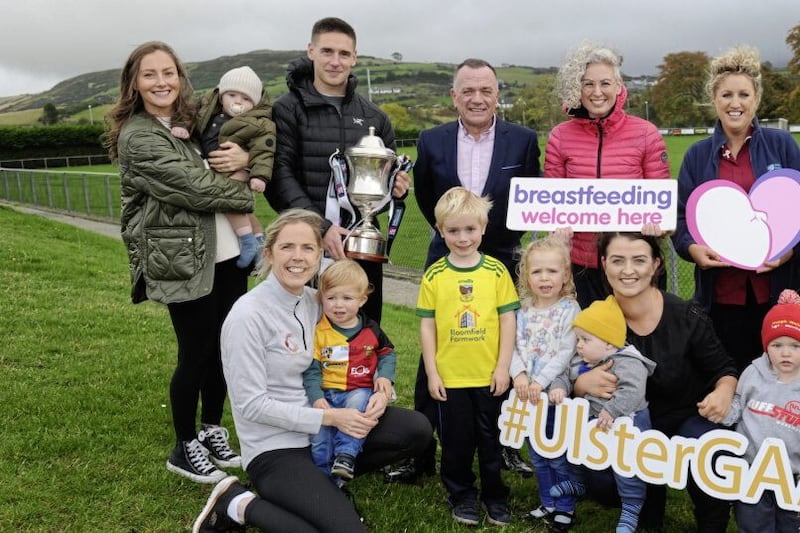ASKING, listening and talking – to someone with a mental health problem, that can be the start of their road to recovery. Just a few little words can make a big difference.
Launched recently, the new mental health media campaign Helping Others is using TV, radio, digital and outdoor advertising and focuses on how people can reach out to support family or friends to deal with a mental-health problem.
The initiative is part of the wider Change Your Mind campaign programme which aims to reduce levels of stigma, discrimination and negative attitudes towards people who experience mental ill-health. The Change Your Mind campaign is led by the Northern Ireland Association for Mental Health (Niamh) and supported by the Public Health Agency (PHA) and Comic Relief.
Derry mum-of-four, Grainne McAnee (45) knows the value of speaking about her mental health. She confided in friend Roisin Cartmill that she was feeling low and unable to cope – and it was the first step on her journey to recovery.
Grainne has experienced mental health problems since her early teens. She believes that people may cover up their problems as they are afraid to ask for help but says talking about your feelings can have a positive impact.
“I had tried various methods of coping, such as spending too much money and using alcohol. I did try to make changes but they never worked," she admits. “I was very successful; I had a great career in IT, I travelled, and I had my own house and sports car. On paper my life looked brilliant, but I hated myself and my job. I was completely false in what I presented.”
In 2007 Grainne had a breakdown and lost her job, her home and her car.
“I wasn’t feeling anything – there was just numbness, I was just going through the motions,” she recalls.
In 2010 she was feeling extremely low and had suicidal thoughts. When she confided how she was feeling to her friend Roisin, it was the first step towards recovery.
“I was so exhausted it was a relief to stop pretending,” Grainne says. "I spoke to Roisin, someone I had known for a very long time. She was very supportive, my ‘go-to’ person. She told me that I needed to see my GP. We made an appointment and she went with me.
“The GP reassured me. She said: ‘You will be OK; I know it doesn’t feel like it now, but you will be OK’. The doctor was very practical and reassuring.”
Grainne was referred to her local Primary Care Liaison team and started to receive counselling. As well as receiving medical help, she was also supported greatly by her parents and her friends.
Roisin (45) explains her role in helping her friend: “I wanted to help Grainne because I love her. I’ve known her from childhood. We’ve been through a lot together and I knew she wasn’t herself. I couldn’t have mistaken the invitation to help.
"I knew myself I didn’t have the skills to help her – I knew I could help in a way of comfort, hugs, not making her feel ashamed, but I also knew that that wasn’t enough and she needed professional help. I knew the GP appointment was needed in best interest of both Grainne and the children.”
Roisin urges those who are worried about someone else to talk to them.
“Don’t be afraid. It requires a level of bravery but you can do it. Educate yourself on what to do or say if you were ever in that position. Always take professional help to guide you.”
Grainne says recovery isn’t easy and hers has been based on a combination of things including the support of friends and family, statutory services and of Zest and other community services.
“People think recovery happens magically but it is a process and involves a combination of treatment, diet, exercise, daily routine and change in attitude and behaviour," she says.
“It has been six years since I was at my lowest point. If someone told me then that in six years’ time I would be in university studying and loving my life, I would never have believed them, but it is possible. You just need to take that first step and tell someone how you are feeling.”
Mary Black, assistant director of health and social wellbeing improvement with the PHA, says: “Through this campaign, we want to encourage people to take that step and start a conversation with someone they are worried about.
“People may feel uncomfortable about starting the conversation or may not know what to say, so this campaign will include resources such as a leaflet and website which give tips on asking, listening and talking about mental health and maintaining that important conversation.”
:: For more information on the campaign, tips on talking, and to get involved as a local champion for mental wellbeing, see www.changeyourmindni.org








